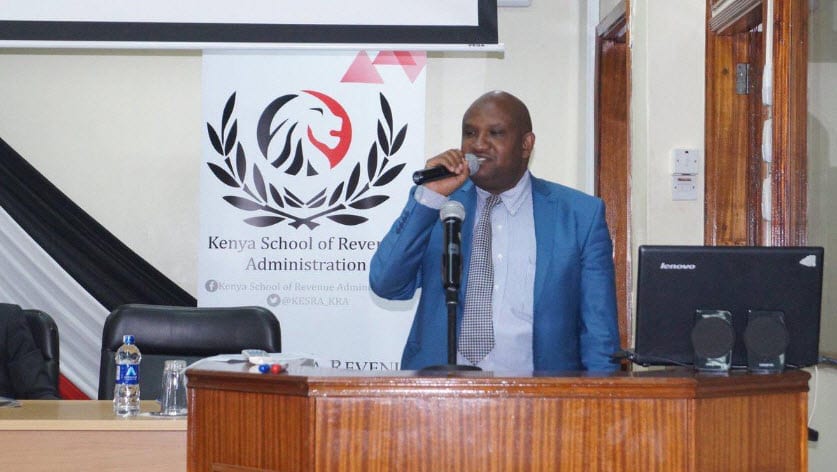Kenya Revenue Authority (KRA) collected Ksh 1.580 trillion in 2018/19 compared to Ksh 1.435 trillion collected in FY 2017/18. Commissioner General James Githii Mburu said KRA collections grew 11.3% compared to the previous year’s 5.1% growth.
Revenue collected has more than doubled over the last seven years from Ksh 0.707 Trillion in FY 2011/12.
The exchequer revenue grew by 11.5% with a collection of Ksh 1, 477 trillion against Ksh 1.340 trillion collected in FY 2017/18. The exchequer tax income amounts as reported in the Kenya Gazette was Ksh 1.440 million. “In addition, KRA collected other duties including Agency Fee amounting to Ksh 103 billion. This is revenue collected on behalf of other government agencies mainly at the ports of entry.
They include Railway Development Levy, Traffic Fees, Land Rent and Cash in Transit amongst other levies,” he added in a statement.
Mburu said KRA collections FY 2018/19 performance compares well with the prevailing economic indicators including GDP growth of 6.1%, and an average inflation rate of 5.2%.
The economic environment had a positive impact of Kshs. 13.866 Trillion on this year’s revenue. Inflation rate was at 7.20% and the dollar exchange rate was at Ksh. 101.16.
For the first time in KRA history, domestic taxes collection exceeded Ksh 1 trillion, while customs revenue exceeded Ksh500 billion.
Revenue collection by departments (Domestic Taxes and Customs and Border Control) experienced growths of 11.0% and 11.8% respectively.
Growth in Domestic Taxes Department exceeded the 3-year (2015/16 to 2017/18) trend of 10.9% while Customs and Border Control growth also exceeded the 3-year (2015/16 to 2017/18) trend growth of 9.5%.
The good performance in Domestic Taxes Department is largely attributed to Rental Income Tax, which grew by 41.7% and Domestic VAT with a growth of 12.3%.
This is attributed to Tax base expansion initiatives that are part of the recently launched KRA 7th Corporate Plan.
Customs revenue was positively impacted by a 16.3% growth in oil revenue and 12.3% growth on import duty.
Oil Revenues grew by 16.3% mainly driven by Kshs. 17,220 million additional revenues as a result of Tax policy (8% VAT on petroleum taxes).
Mburu said non-oil revenues:grew by 11.6% with a positive influence of Kshs 38,217 million during the financial year.
Corporation tax grew by a minimal 5.5% in FY 2018/19. Corporation tax was severely undermined by growth in investment deductions by 284% compared to 2017/18.
However, the tax head witnessed a turn-around in the 4th quarter, growing at 12.0% compared to an average 1.8% over the 1st three quarters. This was principally due to the turn-around in the banks performance with overall growth of 29.3% in the 4th quarter compared to a decline of 7.9% in the 1st three quarters.
PAYE grew by 7.9% as a result of subdued growth in the private sector employment. Employees Registered for PAYE grew by 4.5 % in FY 2018/19.
PAYE growth was driven by the public sector, which registered a cumulative growth of 8.9% driven by upscaling of salaries in the education sector.
Tax policy, driven by the impact of the widening of tax bands, reduced the revenue base by Ksh 6,125 million cumulatively. Domestic VAT grew by 12.3% driven by 9.8% growth in Value Added Tax turnover, which was mirrored in nominal GDP growth of 10.4%.
The domestic VAT growth was also explained by growth in withholding VAT and in particular growth in public sector withholding which grew by 12.1%.
Domestic Excise grew by 12.3%, on the back of a volume growth in cigarettes and beer. Cigarette output grew by 4.9% over FY 2018/19.
With respect to beer, non-‘keg’ beer (where the bulk of taxes are) volumes declined as ‘keg’ beer volumes (which benefits from remissions) grew substantially.
Thus the growth was primarily explained by slow volume growth in cigarettes and composition in beer deliveries.












Leave a comment